23rd November 2014
Dear all,
here I am, at the end of my week in Marej, a small town in West Bekaa, overcome by this new chapter of our projects in Lebanon, this time in support of the Syrian refugees. We are 20 km from the Syrian border, and about 40 km from Damascus.
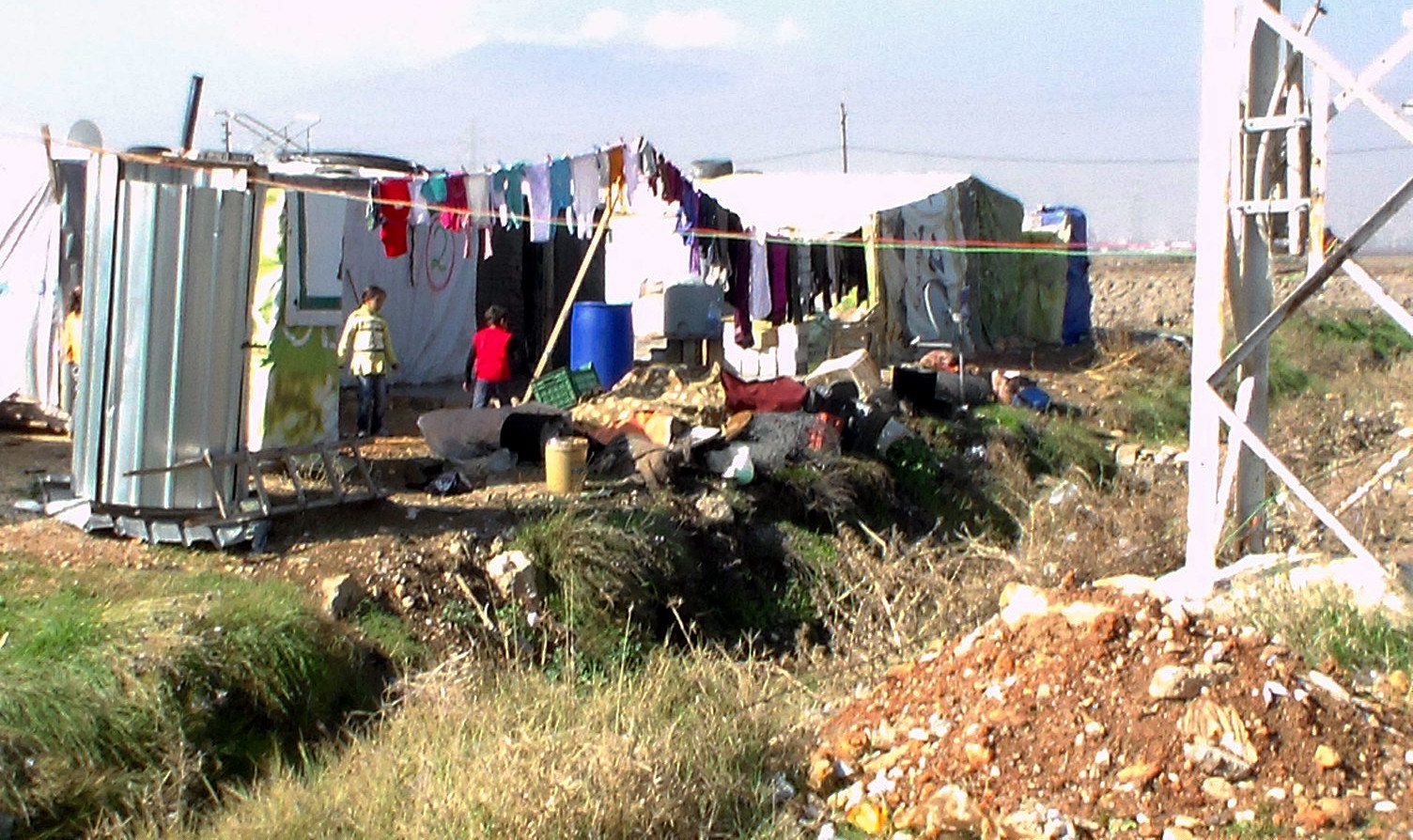 What new things can I tell you, with respect to ‘Music and Resilience’ so far? Certainly, the project is similar to our work with the Palestinian refugee community; I am training teachers and care workers in ‘psycho-social music education’, in other words, the use of music as an emergency resource for contrasting the emotional and psychological disintegration in traumatised refugee children; more and more neuro-psychological research is revealing the urgency in disaster areas of this kind of intervention, which appears to be of equal importance to the ‘classical’ emergency aid (water, food, shelter), to protect and sustain the victims’ capacity to resist psychologically and to react in an active and constructive way.
What new things can I tell you, with respect to ‘Music and Resilience’ so far? Certainly, the project is similar to our work with the Palestinian refugee community; I am training teachers and care workers in ‘psycho-social music education’, in other words, the use of music as an emergency resource for contrasting the emotional and psychological disintegration in traumatised refugee children; more and more neuro-psychological research is revealing the urgency in disaster areas of this kind of intervention, which appears to be of equal importance to the ‘classical’ emergency aid (water, food, shelter), to protect and sustain the victims’ capacity to resist psychologically and to react in an active and constructive way.
But the stories are very different. I can tell you about Lama*, field manager of the project, 36 years old, historian and archeologist; she fled to Lebanon from Damascus after having being imprisoned 3 times for helping the orphan children of the villages bombed by the Asaad regime. She has left her 15 year-old son in Damascus with her parents (her father is pro-regime), in order to ensure school continuity. She is applying for political asylum in Canada, where she hopes to take her son.
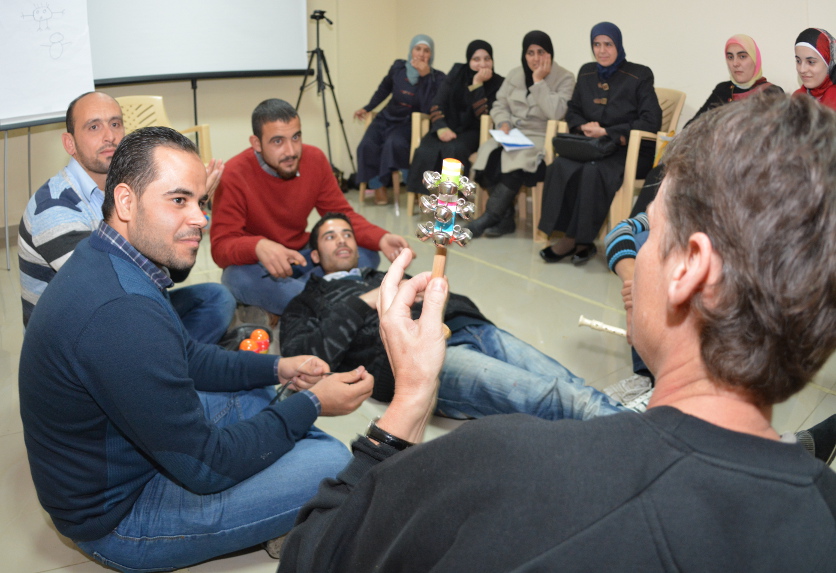 Or I can tell you about Alaa, 28 years old, imprisoned 5 times for the same reason as Lama, and brutaly beaten during the last period of reclusion (for involvement in the organisation of a anti-regime demonstration). He was lucky, he was released from jail; he paid 1500 USD to be escorted over the Syrian-Lebanese border into the Bekaa valley; now he is blocked in lebanon, without documents or registration. Back in Syria, his 22 year-old brother has been in jail for 2 months, with no possibility of communication with the family.
Or I can tell you about Alaa, 28 years old, imprisoned 5 times for the same reason as Lama, and brutaly beaten during the last period of reclusion (for involvement in the organisation of a anti-regime demonstration). He was lucky, he was released from jail; he paid 1500 USD to be escorted over the Syrian-Lebanese border into the Bekaa valley; now he is blocked in lebanon, without documents or registration. Back in Syria, his 22 year-old brother has been in jail for 2 months, with no possibility of communication with the family.
Or about Rawda, 20 years old, who escaped to Lebanon from Damascus with her 3 very small sons after her husband was shot in prison; she is working as a teacher in one of the camp schools.
Families destroyed, torn to shreds. 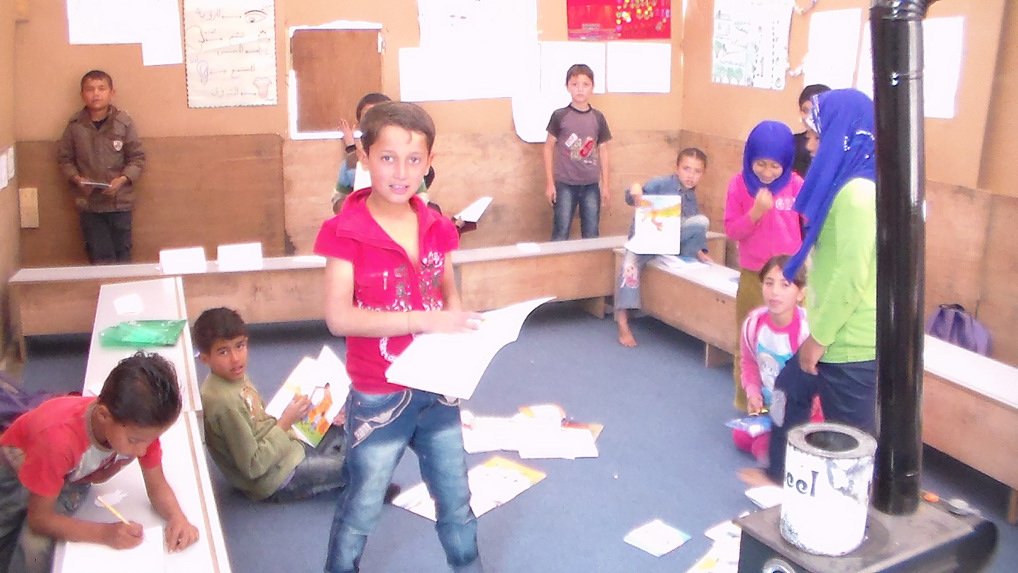 The Syrians in Lebanon lack the 66 years of experience of being refugees, which their Palestinian ‘brothers’ have been condemned to acquire; the Syrians are completely lost, disorientated, totally without resilience for now. And obviously, their ‘camps’ really consist of tents, unthinkable, considering that the Winter is about to begin, and the Bekaa valley temperatures will descend to zero and below each night. But in one visit to the camps nearby (there are about 20 in the Marej area alone, of various sizes, from 50 to 200 families), the biggest shock for me was the sight of concrete floors in each tent, provided by the UN. My heart lurched; sure, a waterproof floor is better, but what does this mean? That next year there will be brick walls?…
The Syrians in Lebanon lack the 66 years of experience of being refugees, which their Palestinian ‘brothers’ have been condemned to acquire; the Syrians are completely lost, disorientated, totally without resilience for now. And obviously, their ‘camps’ really consist of tents, unthinkable, considering that the Winter is about to begin, and the Bekaa valley temperatures will descend to zero and below each night. But in one visit to the camps nearby (there are about 20 in the Marej area alone, of various sizes, from 50 to 200 families), the biggest shock for me was the sight of concrete floors in each tent, provided by the UN. My heart lurched; sure, a waterproof floor is better, but what does this mean? That next year there will be brick walls?…
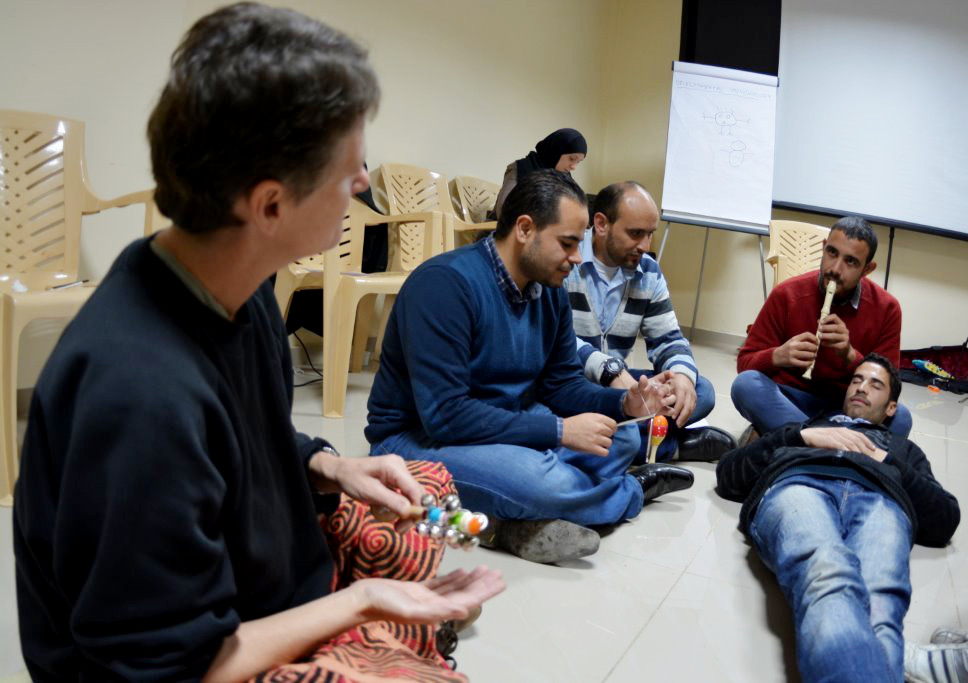 We have started to work, with a thousand difficulties in this situation where stability and regularity (of lesson times, of programming …) are continually threatened. The 18 trainees have had immense problems attending the course, but a good nucleus has been able to follow daily, completing this first training with the warmly expressed conviction that music will effectively help them to communicate better with the children, and will help the children to externalize experiences which are untouchable with words.
We have started to work, with a thousand difficulties in this situation where stability and regularity (of lesson times, of programming …) are continually threatened. The 18 trainees have had immense problems attending the course, but a good nucleus has been able to follow daily, completing this first training with the warmly expressed conviction that music will effectively help them to communicate better with the children, and will help the children to externalize experiences which are untouchable with words.
Tomorrow I will be in Beirut with our ‘historical’ partner Beit Atfal Assumoud, before catching the plane home. It’s very difficult to shake off the heaviness of these many new impressions, these new meetings with people who are trying to keep going, to pull themselves out of total despair and find ways to react. Like on the first evening, when I was invited to dinner in the home of one of the trainees, and Maissa began to dance to the interminable songs of Feyrouz on the TV. Teased by her friends, she replied: “If you laugh, everyone laughs with you; if you cry, you cry alone.”
with love,
Deborah
* Names have been changed, for privacy


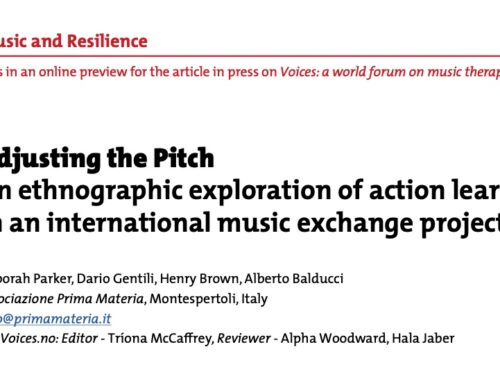

Leave A Comment